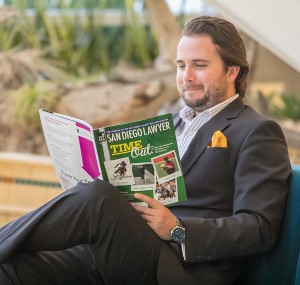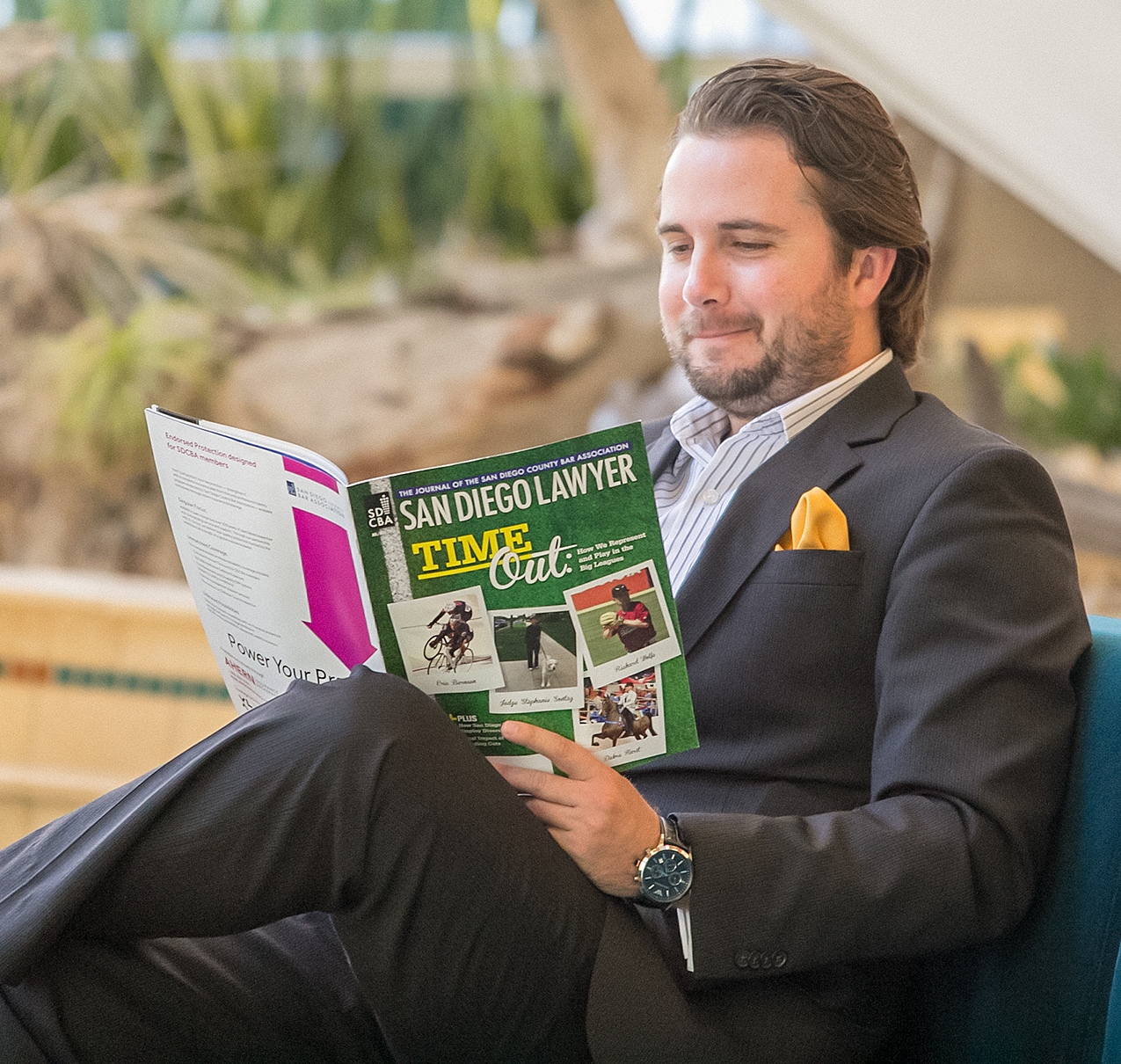The following interview was conducted by Jonathan M. Stahler, Esq. Jeremy M. Evans is the Managing Attorney at California Sports Lawyer which represents sports and entertainment professionals in contract drafting, negotiations, licensing, and career growth.

(1) When did you realize that you wanted to pursue a career as sports/entertainment attorney and what specifically interested you in these areas?
It boiled down to growing up playing baseball and being a fan of all sports. Sports were always in the back of my mind. In addition, competing in the National Baseball Arbitration Competition (NBAC) hosted by Tulane University Law School all three years of law school introduced me to how I could use my legal knowledge and love for sports to get into the industry and have great clients.
While in law school, I had really only interned for criminal defense and civil litigation firms, so the NBAC instilled in me the idea that I could work in sports and entertainment. Still while in law school, I created the National Sports Law Negotiation Competition (NSLNC) hosted by Thomas Jefferson School of Law. The NSLNC is now in its 5th year and has been a great success.
After graduating from law school in 2011, I worked for the San Diego Superior Court as a Graduate Law Clerk, but CA budget cuts left me to make a tough decision. Seek employment or work for myself by building a reputable business. I chose the latter and have never looked back. Once I made the decision to open my own law practice, it was common sense to choose practice areas that I enjoyed and had experience. With that being said, having good mentors (encouragers) has helped as well.
(2) Where did you go to college and law school? Did you do any internships to further market yourself in the industries while in school?
I attended UCLA [the University of California, Los Angeles] for undergrad and Thomas Jefferson School of Law (TJSL) for law school. I had no internships in sports and entertainment. I honestly received my experience in sports and entertainment by drafting negotiation problems, participating in mock negotiations, and doing research and planning for both the NBAC and the NSLNC. Personal relationships with those in the industry helped. Although I worked for the international law firm, Quinn Emanuel, in accounting before law school, my internships were with the Public Defender’s Office and various civil litigation firms. Several different mentors have also helped me and guided me in the right direction early on in my career.
(3) How has the growth in technology affected the athlete and entertainment representation industries?
Technology has affected athletes and entertainers in three ways. First, it allows for rumors and alleged criminal acts to come into the limelight and go public instantly. Second, with Twitter, Facebook, and Instagram, nothing is really private anymore with people’s lives, and private matters/documents are being made readily available, 24/7. Third, technology, and this is a good thing, allows athletes and entertainers to connect with fans in a way they never could before. A good example is Jimmy Kimmel’s ‘Mean Tweets’ with athletes and celebrities.
(4) Take our readers through a typical day in your life?
Well, as the saying goes, there is no typical day. However, I get up at 5:00am to go for a 5-mile run about four times per week. By 6:30am, I am ready and at my desk checking emails, updating my social media accounts, and researching articles on ESPN and sports/entertainment law blogs. After that, if a phone call comes in from a client, that puts everything on hold because clients always come first.
Otherwise, as the Director of the Center for Sports Law and Policy (CSLP) at Thomas Jefferson, I am planning events and communicating with our 80+ CSLP Sports Law Fellows, working on the NSLNC fact patterns, having conference calls with collaborating faculty, or organizing networking and educational events through the TJSL Alumni Association and or local, state, and national bar associations.
I live and work in downtown San Diego and have not had a car for years, but it works for me. My residence is an old bank style vault—hopefully living in a bank means something for my bank account.
(5) If there was one thing about the sports industry you could change, what would that be and why?
There needs to be a unified sports agent act nationwide along with federal regulation. There is no need whatsoever for each state to have its own statutes with different registration prices and processes. By having a unified sports agent act, funding can be distributed to each state based on the number of athletes participating and agents registered in each state. This will build business and goodwill, meaning agents and attorneys in the industry would be more willing to work with each other. Lastly, sports and talent agents are doing lawyerly things, with many not having their licenses to practice law. This impedes on licensed attorneys and their own restrictions, so better and consistent regulation would help the industry tremendously.
(6) What are some of your personal goals for current and future clients?
As with any business, I want to see overall growth, from clients growing (for example, moving up from Single-A, to Double-A, to Triple-A, to the Major League Baseball, or moving up the ranks in NASCAR, or growing clients’ businesses), to growing my business with more clientele. For when a business fails to grow, it dies. Getting a car in the near future will also expand my business and allow me to make more contacts. No matter what, honing my craft and making positive contributions to my community and the organizations I am involved with will help me achieve those goals and to be satisfied with personal success.
(7) What advice do you have for young professionals looking to enter the sports/entertainment business?
Number one, engage yourself and put yourself in situations to learn the business and practice of law. Lawyers sometimes forget each lawyer is a separate business, and lawyers never really learn how to run a business/firm, start a trust account, marketing v. advertising, etc. You learn that in the practice of law, hence why it is called the practice of law.
Number two, build relationships and plant seeds for the future, and bring value to those relationships.
Finally, number three, be yourself and be genuine, because it got you to this point in life.
